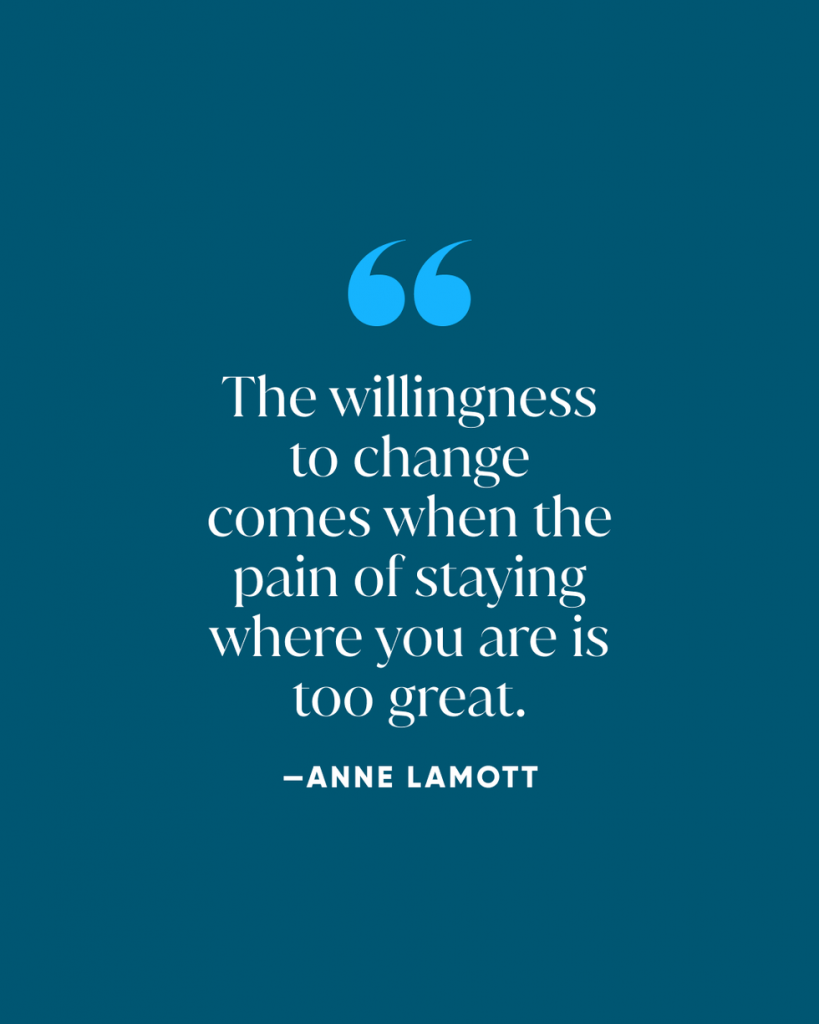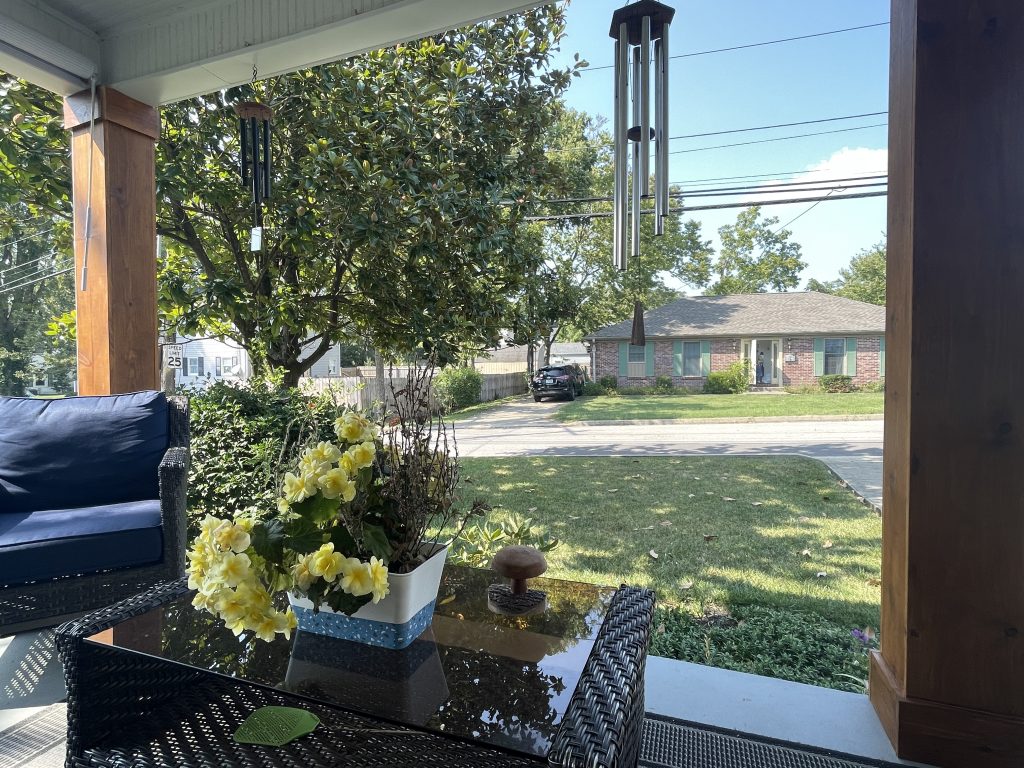

If everything seems to be going well, you have obviously overlooked something. Stephen Wright
Be You
God wanted me to be me and only me. He wants you to be you and only you. God never repeats Himself in creation. No two snowflakes are alike. No two people are alike either. We shouldn’t be surprised that He only made one of each of us. Be you. It’s one of the most Godly things you can do.
Mike Glenn
Awe
The feeling of being in the presence of something vast that transcends one’s current understanding of the world.
Dacher Keltner
The Pursuit of Bigness
“The pursuit of bigness is a relentless monster that demands to be fed but will never be satisfied. It consumes everything and everyone in its path.” Numbers can toss shade on weak teachings, cheap grace, relentless ego-making. “Wanting to reach people for Jesus and wanting bigger attendance are not the same thing.”
“The pursuit of bigness in the church is morally, theologically, and emotionally damaging.” Yes, growth. “We should prepare for growth. We should be ready for growth period but we should not pursue growth.” He lays down another strong claim: “It is not possible to pursue Jesus and to be obsessed with bigness at the same time without one of them becoming diminished in the process.”
Karl Vaters – De-Sizing the Church: How Church Growth Became a Science, Then an Obsession, and What’s Next
What you leave behind is not what is engraved in stone monuments, but what is woven into the lives of others.
Pericles (495-429 BCE)
“You’ll stop worrying what people think about you when you realize how seldom they do.”
– David Foster Wallace
Conversations from the heart
Our own conversations, both when speaking and listening, do well to be grounded in the heart.
Here are some tools to use to remain in the heart:
- Use fewer words – be silent if possible. (Eccles. 3:3)
- Only speak the truth, though it is not necessary to be unkind. (Eph. 4:15)
- Resist the effort to defend yourself. (Matt. 10:19)
- It is not important to be right. (Proverbs 26:21)
- Do not argue. Your effect on someone else’s ego will come to nothing. (Hos. 4:4)
- Tell your anxieties that everything will be ok. (Phil. 4:6)
- Don’t be in a hurry to speak. Let someone else finish their thought. (Proverbs 29:20).
- Breathe.
Fr Stephen Freeman
A Prophecy
Four decades ago, Neil Postman prophesied an apocalypse of moral idiocy in the age of mass media. “When a population becomes distracted by trivia,” he wrote, in Amusing Ourselves to Death, “when cultural life is redefined as a perpetual round of entertainments, when serious conversation becomes a form of baby-talk, when, in short, a people becomes an audience and their public business a vaudeville act, then a nation finds itself at risk; culture-death is a clear possibility.”
The Atlantic
Reading Fiction
Professional golfer John Daly, who rarely does or says anything intelligent, accidentally stumbled from a fairway onto a stage of reporters and commented ever so accurately that he didn’t like fiction because, “after all, none of it is true”. Depending, I guess, on what you mean by “true”, but the floppy-haired, droopy-faced golfer was onto something. At least at the time I thought he was. Why, I have asked myself for nearly 30 years of serious reading, why read those who play pretend when I can read those who tell the truth? Fiction, to quote the words of one who did write a bit of fiction (Frank O’Connor), “covers every reality with a sort of syrup of legend.”
Scot McKnight

View from the Front Porch
The Friendly Church
Is your church friendly?
If a first-time visitor commented they did not find your church to be very friendly, what would be the response ?
How would you reconcile the visitor’s experience with a conclusion your church is friendly ? Easy enough…
She was probably not very approachable.. She may have left immediately after services before anyone had a chance to engage her… She didn’t speak to anyone… et al. More significantly she was a stranger.
It only takes a cursory observation of the foyer to see how friendly a church is. People are everywhere, warmly greeting and talking with one another. A closer look reveals that friendliness is mostly directed to people we know. Yes we are friendly. That sort of interaction is what we have in mind when we declare that we are friendly. One author would describe the foyer scene as “The Territory of Our Kindness”
The Territory of Our Kindness
The walls we have to tear down to make room for each other are rarely physical. The walls that separate us are mostly psychological. Feelings are what exclude people from our friendship and dinner table: ignoring versus noticing, suspicion versus trust, exclusion versus embrace.
To describe how our affections carve up the world into friends versus strangers, the ethicist Peter Singer uses an idea he calls “the moral circle.” A moral circle is created by a simple two-step process. First, we identify our tribe. We make a distinction between friends and strangers. We locate our family, friends, peeps, and BFFs. Everyone in this group is inside my moral circle. Everyone else is a stranger. So that’s step one: make a distinction between friend and stranger, between insider and outsider. The second step is this: extend kindness toward those on the inside of your moral circle. Consider the roots of the word kindness—kin and kind. Kindness is the feeling I extend toward my kin (my tribe, my people, my friends), toward those who are the same kind of people as me. Our affections are for sameness—like attracted to like, as Aristotle noticed millennia ago. We’re drawn toward the similar and the familiar. We care and look out for “our kind.” There is goodness in this dynamic—our love for family and friends, our loyalty to our tribe and “our people”—but there is also much darkness. The moral circle highlights our natural tendency to restrict our kindness to the few rather than to the many, limiting our ability to see or notice the stranger, let alone welcome him or her. Because the walls that separate us begin with our emotions, only a few people are admitted into the circle of our affections, the circumference of our care.
http://fortresspress.com/product/stranger-god-meeting-jesus-disguise\
Perhaps the better question is: “Are we hospitable?” Being friendly is not the same as being hospitable.
… hospitality — welcoming God in strangers and seeing Jesus in disguise — begins by widening the circle of our affections , the circumference of our care , the arena of our compassion , and the territory of our kindness.
Beck, Richard. Stranger God: Meeting Jesus in Disguise (p. 9). Fortress Press.
We make room for each other because God made room for us . “ Welcome one another , ” Paul says in Romans 15 : 7 ( NRSV ) , “ as Christ has welcomed you . ”
Hospitality is expanding the moral circle to make room in our hearts for each other .
STILL ON THE JOURNEY